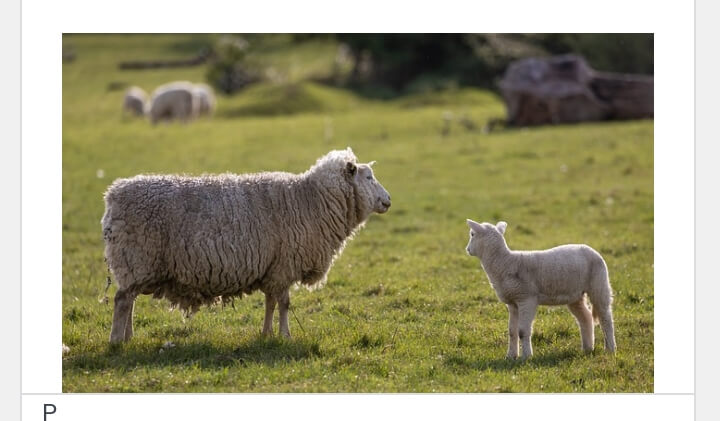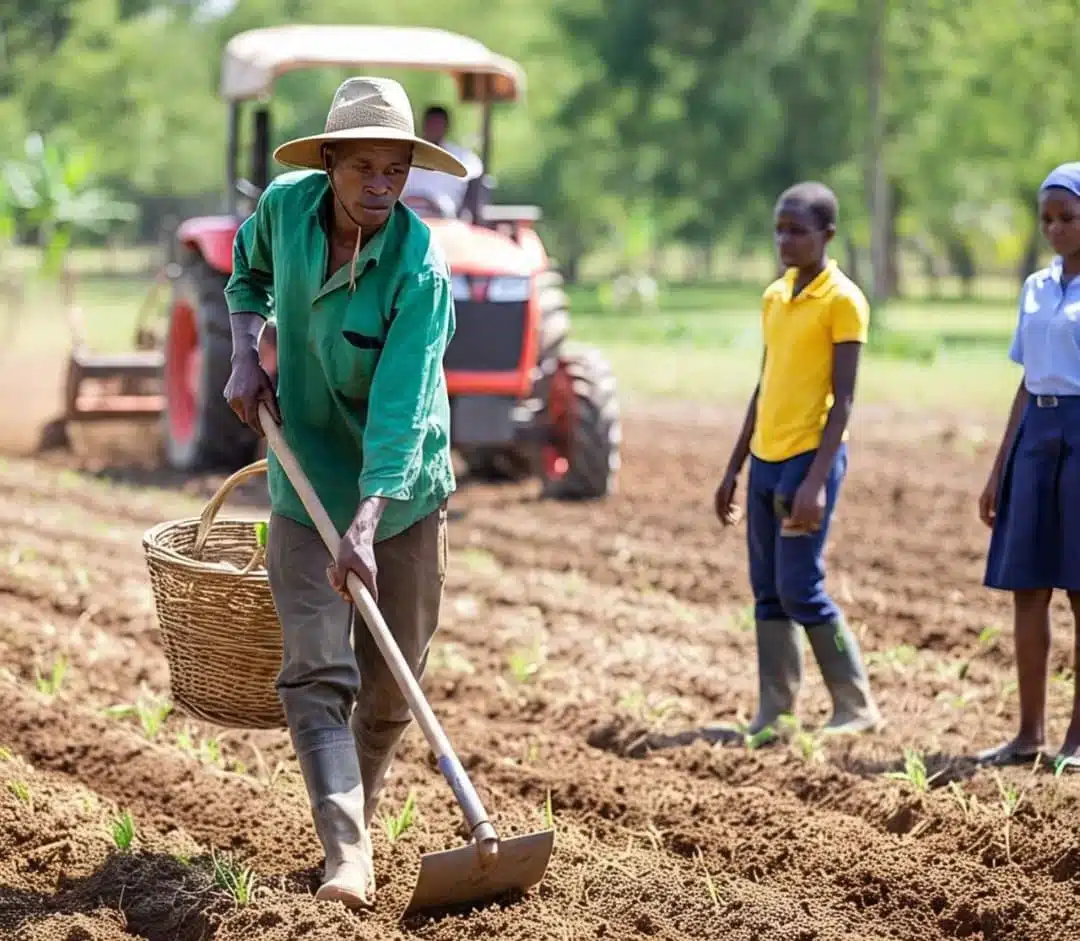Primary 5 Agricultural Science
️ Third Term – Week 5
Topic: Post-Planting Activities
Subtopics: Irrigation, Mulching, Thinning, Supplying, Fertilizing, Weeding
Learning Objectives (By the end of the lesson, pupils should be able to:)
-
Explain the meaning of post-planting activities.
-
List at least 5 activities done after planting.
-
Demonstrate how to properly apply manure or fertilizer to crops.
INTRODUCTION (Set Induction)
“Imagine you just planted a garden of tomatoes… Is that the end of the work?”
The pupils giggle, and one replies, “No ma! You have to water it!”
Exactly.
Just like caring for a baby, your crops also need attention after they’re planted. These caring actions are called post-planting activities. They help the crops grow well, stay healthy, and produce good harvests.
MEANING OF POST-PLANTING ACTIVITIES
Post-planting activities are the tasks farmers do after putting seeds or seedlings into the soil. These activities help the young plants grow properly and protect them from diseases, pests, and harsh weather.
Examples of Post-Planting Activities
| Activity | Meaning | Example/Illustration |
|---|---|---|
| Irrigation | Watering the crops regularly | Using a watering can during dry season |
| Mulching | Covering the soil with dry leaves or grass | Prevents water loss and keeps weeds away |
| Thinning | Removing extra seedlings so that each plant has space to grow | Pulling out smaller maize seedlings where two grew together |
| Supplying | Replacing dead or weak plants with new ones | If 2 tomato seedlings die, plant 2 more in the same spot |
| Fertilizing | Adding manure or fertilizer to improve plant growth | Using NPK or compost to help crops grow strong |
| Weeding | Removing unwanted plants (weeds) | Using a hoe to clear weeds from the ridges |
CLASSROOM DEMONSTRATION: Applying Fertilizer
Materials Needed:
-
A small bag of compost manure or NPK fertilizer
-
A hoe
-
Watering can
-
Potted plants or small demo farm behind classroom
Steps to demonstrate proper fertilizer use:
-
Clear the base of the plant of any weeds.
-
Use the hoe to make a small circle 5 cm away from the plant stem.
-
Sprinkle a small quantity of manure/fertilizer around the plant—not directly on the stem.
-
Cover with soil lightly.
-
Water the plant.
Repeat the process with 2–3 pupils in turns for mastery.
CLASS INTERACTION (Teacher–Pupil Talk)
Teacher: If you see two maize seedlings growing too close together, what should you do?
Pupil: Thin it, ma! Remove one so the other can grow well.
Teacher: Excellent! Why don’t we pour the fertilizer directly on the stem?
Pupil: Because it can burn the plant and kill it!
✍️ EVALUATION QUESTIONS
A. Fill in the Blanks
-
The act of removing unwanted plants is called __________.
-
Adding nutrients to the soil through manure or fertilizer is known as __________.
-
__________ helps the soil to retain moisture and reduce weed growth.
B. Answer the Following
-
What are post-planting activities?
-
Mention any four post-planting activities.
-
Describe how to properly apply manure to a growing plant.
WEEKLY RECAP
Post-planting activities are like the daily care we give to young babies. Crops need water, nutrients, protection from weeds, and enough space to grow. When farmers do these activities well, they harvest bountifully.
HOMEWORK (To Reinforce Learning)
Draw and label two post-planting activities that you or someone you know has done before.
KEYWORDS FOR REVISION
-
Irrigation
-
Mulching
-
Thinning
-
Supplying
-
Fertilizing
-
Weeding
-
Post-planting
INTERNAL LINKS (for www.lessonshabitat.com)
FAQ
Q: Can we use animal dung as fertilizer?
A: Yes! When dried and decomposed, animal dung becomes organic manure and is very good for plants.
Q: Why is thinning important?
A: Thinning gives each plant enough space to grow well without fighting for nutrients or sunlight.
Q: What happens if we don’t do post-planting activities?
A: The crops may grow poorly, get diseases, or die. This leads to a bad harvest.
CLOSING THOUGHT
“To grow a seed is to believe in tomorrow. But to care for that seed—that is the wisdom of the farmer.”
Let us not stop at planting. Let us care, protect, and nurture—because farming is not just sowing seeds, but growing life.
Internal Links (for www.lessonshabitat.com)
-
✅ Procedures for Crop Production | Primary 5 Agricultural Science Week 3
-
✅ Planting Activities for Primary 5 Pupils: Tools, Spacing, and School Farm
-
✅ Importance of Farming Vocational Aptitude Primary 1 Third Term
External links
-
National Agricultural Extension & Research Liaison Services (NAERLS)
-
FAO – Food and Agriculture Organization: Crop Management Guide








